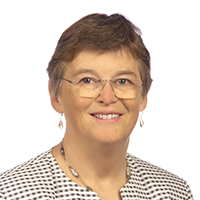While the survey indicates overall improvements in various aspects, a concerning undercurrent of bullying and discrimination continues to mar the profession.
In the wake of the release of the 2023 Medical Training Survey (MTS) results, a comprehensive analysis of five years’ worth of data sheds light on both positive advancements and persistent challenges within Australia’s medical training landscape.
Conducted annually, the MTS serves as a profession-wide longitudinal survey, offering insights into the quality of medical training across the nation. This year, over half (54.5%) of Australia’s doctors in training participated, providing a substantial dataset for analysis.
Chair of the Medical Board of Australia, Dr. Anne Tonkin AO, expressed optimism about the survey’s findings, citing improvements in the quality of supervision, orientation, education, and training.
Notably, trainees reported reductions in workload and hours of work, and fewer individuals are contemplating leaving the medical profession. The introduction of new questions on flexible training and work options establishes a baseline for future evaluations.

Additionally, she highlighted the importance of understanding the impact of pandemic-related pressures on trainee experiences and discerning specific versus systemic improvements.
Despite these positive trends, the 2023 MTS results underscore an ongoing issue—the prevalence of bullying and harassment within the medical culture. Dr. Tonkin emphasised the urgent need for sustained efforts to foster a culture of respect in both medicine and medical training.
A staggering 54% of Aboriginal and Torres Strait Islander trainees reported experiencing or witnessing bullying, harassment, discrimination, or racism, while 35% of all trainees faced similar challenges. This persistent problem demands immediate attention and action to address the critical need for improvement.
Beyond the headline numbers, the survey reveals nuanced variations across medical disciplines, jurisdictions, and health services. Dr. Tonkin stressed the importance of longitudinal analysis to discern patterns and identify areas where intervention is required.
The link between culture and patient safety remains a focal point, with Dr. Tonkin advocating for collaboration among frontline organisations to drive lasting cultural change.
Despite the challenges, the MTS received robust participation from Aboriginal and Torres Strait Islander trainees, providing valuable insights into their experiences. Dr. Tonkin acknowledged the importance of this feedback in shaping culturally safe medical training and healthcare.
The inclusion of new questions on flexible training and working arrangements offers a baseline to monitor future trends. While trainees generally perceive support from specialist colleges, workplace implementation remains lacking, with nearly one in five trainees facing barriers to accessing flexible working arrangements.
Dr. Tonkin urged organisations across the health sector to leverage the rich MTS data for continuous improvement, ensuring that Australia’s doctors in training receive the support needed to excel on the global stage.
Read the latest issue of SPA+CLINIC below:
There are 5 ways you can catch up with SPA+CLINIC
- Our quarterly print magazine, delivered to your door. Subscribe here.
- Our website, which is updated daily with its own completely unique content and breaking news.
- Our weekly newsletter – free to your inbox! Subscribe here.
- Our digital magazine – click here to view previous issues.
- Our social media – see daily updates on our Instagram, Facebook & Linkedin




